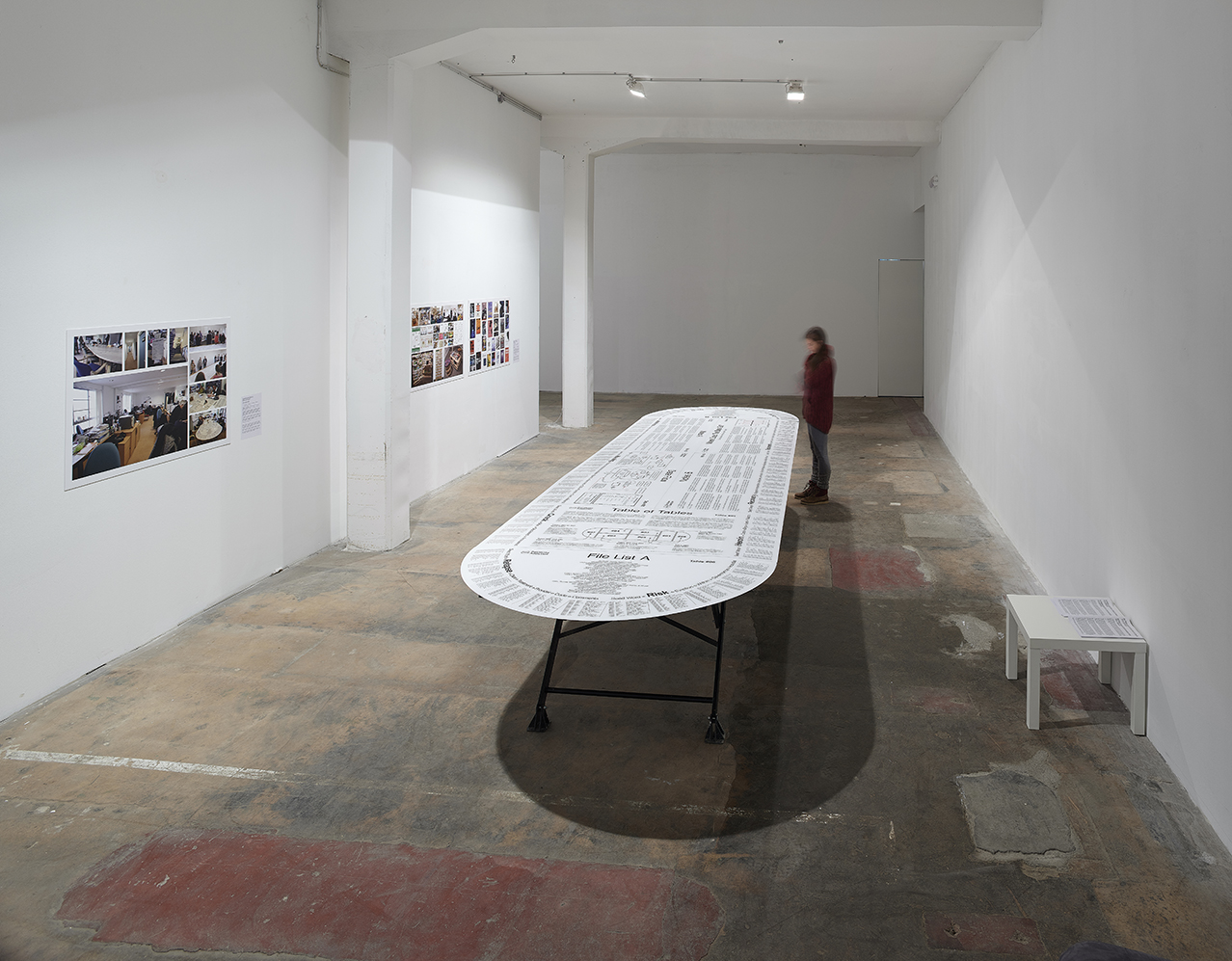YoHa – Graham Harwood
in Matsuko Yokokoji (UK)
Database Addiction 2015–2018
In 2015 YoHa took an ecological and aesthetic approach, working with the UK’s National Health Service addiction clinics, to investigate how databases produce an abstraction of the clinical modalities. Database Addiction explored the methods by which the materiality of the care-centers work can be managed and governed at multiple scales from within computation and how such processes transform work based cultures and the lives of addicts.
The project close read the structure of the UK’s National Drug Treatment Monitoring Service which unlocked what is articulated about addiction from an ideological, technical, political, bureaucratic or governmental viewpoint that is used amongst other things for mone-tising addiction services.
Table of Tables (2015)
Database Addiction took place at Lorraine Hewitt House in 2015. The clinic is in the heart of Brixton and is staffed by a very busy and engaged team of dedicated drug workers, clinical psychologists, social workers, psychiatrists, administrators and reception staff.
These tables are an attempt to think with the structural coupling of databases and the intention of the clinic and its staff. Databases are more often than not regarded as a technical solution with scant regard to their culturalisation and sociality, or the way in which knowledge and power are altered by them.
The databases can be thought of as an abstraction of the clinics modalities. They afford methods by which the materiality of the clinics work can be managed and governed at multiple scales through computation. This process of abstraction allows distance and overview from the gritty work of dealing with addiction. The database system is thus always incom-plete and structurally flawed as a representation of the experience of the clinic.
The clinic is at the nexus of several databases: the National Drug Treatment Monitoring System (NDTMS), Electronic Patient Journey System (ePJS), NHS Spine and others. All the work at the clinic informs collections of information that in turn evidence decisions and activities and result in quantifiable metrics that reciprocally create other individual actions by the staff.
YoHa produced a set of replacement tabletops for the centre’s tables in the meeting room. The tabletops were used there for three years until they were moved to the Science Gallery, Kings College London, to be shown at the exhibition “Hooked” 21 Sep 2018–27 Jan 2019.
Graham Harwood and Matsuko Yokokoji (YoHa — English translation 'aftermath') have lived and worked together since 1994. YoHa's graphic vision combined with their technical tinkering has powered several celebrated collaborations establishing their international reputation for pioneering arts projects. This includes the first on-line commission from the Tate Gallery London, the permanent collections of the Pompidou Centre in Paris, the Centre for Media Arts (ZKM) in Karlsruhe and Manifesta7 in the Bolzano province of Italy. They co-founded the London-based artists group Mongrel (1996–2007) and established Mediashed, a free-media lab in Southend-On-Sea (2005–2008). In 2008 they joined Richard Wright to produce Tantalum Memorial, winning first place at the 2009 Transmediale. Tanta-lum Memorial was also featured in several places, including at the ZeroOne Biennial (USA), Manifesta7 (Italy), Ars Electronica (Austria), Plug.in (Switzerland), Laboral (Spain), Arte-fact (Belgium), UKS (Norway), the Science Museum, the Arnolfini and many other UK venues. More recently YoHa has co-produced Coal Fired Computers (2010), Invisible Airs (2011), Evil Media Distribution Centre (2013), Wrecked on the Intertidal Zone (2015–16), Plastic Raft of Lampedusa (2016–17), Database Addiction (2015–19). Graham Harwood currently teaches at the Centre for Cultural Studies, Goldsmiths, University of London.
http://yoha.co.uk/da
 Photo: Damjan Švarc
Photo: Damjan Švarc